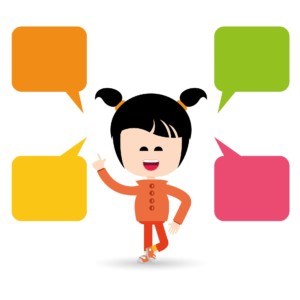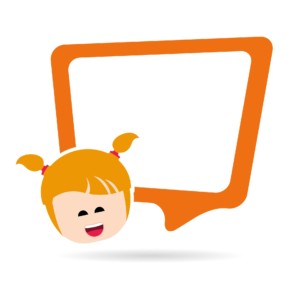It can be difficult for a child with a articulation disorder. Which typically involves indistinct or slurred speech and substituting one sound for another.
According to the American Speech Language Hearing Association (ASHA).
Children may say some sounds the wrong way as they learn to talk. They learn some sounds earlier, like p, m, or w. Other sounds take longer to learn, like z, v, or th. Most children can say almost all speech sounds correctly by 4 years old. A child who does not say sounds by the expected ages may have a speech sound disorder. You may hear the terms “articulation disorder” and “phonological disorder” to describe speech sound disorders like this.
 By 3 months old a child should be making cooing sounds
By 3 months old a child should be making cooing sounds
By 5 months they should laugh and make playful sounds
By 6 months they should make speech-like babbling sounds like puh, ba, mi, da
By 1 year old, babbling longer strings of sounds like mimi, upup, bababa.
By 3 years a child should be able to say m, n, h, w, p, b, t, d, k, g, and f in words. Familiar people understand the child’s speech.
By 4 years old, says y and v in words. May still make mistakes on the s, sh, ch, j, ng, th, z, l, and r sounds. Most people understand the child’s speech
A vital element for a child with a communication or articulation issues is speech therapy. There are also ways to help your child at home.
Reading
Reading plays a vital role in your child’s development and this includes speech. As they listen to the story, you model correct articulation.
Play
Similar to reading, when modeling proper speech when playing a child subconsciously learns.
Narrating daily routines
 As you go about your everyday routines, getting ready in the morning, making meals, and getting ready for bed, narrate what you are doing. This allows your child to hear a variety of words in different settings
As you go about your everyday routines, getting ready in the morning, making meals, and getting ready for bed, narrate what you are doing. This allows your child to hear a variety of words in different settings
Children develop at different rates, comparing them to other children is not necessarily an effective way to measure your child’s speech or language development. But equally important, if you suspect your child has a speech or language disorder, it is important to take action and contact First Words Speech Therapy.
“The earlier a child’s speech and language problems are identified and treated, the less likely it is that problems will persist or get worse. Early speech and language intervention can help children be more successful with reading, writing, schoolwork, and interpersonal relationships,” according to ASHA.
If you are concerned your child is not meeting their speech or language milestones, contact First Words Speech Therapy.
We start with an evaluation, this is the initial assessment that takes place prior to starting any therapy plan. Evaluations typically consist of formal testing and informal play-based assessments.
The formal testing will yield numeric results; while the informal play-based assessments allow the clinician to obtain pertinent clinical observations based on your child’s behaviors and skills as demonstrated during play.
The purpose of the evaluation is to determine your child’s strength and weaknesses for a given skill in order to generate an individualized plan of care.


